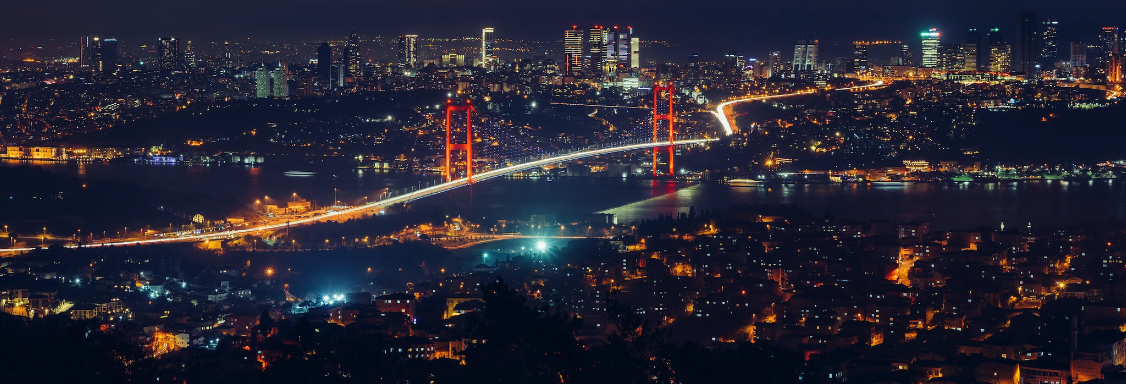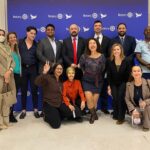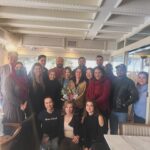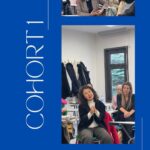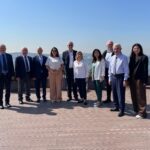Field Trips
It is mandatory to attend four field trips organized within the scope of the program. Fellows will thus experience peace and development studies not only in the academic setting but also in vital historical and practical contexts. Each trip is planned to last 2-5 days, and accommodation, transportation and meals will be covered by the Peace Center. Where accommodation facilities are shared, Fellows will be asked to choose whom to share with. Fellows are responsible for their own personal expenses, covering telephone calls, internet usage, hotel room mini bar and laundry, among others.
Fellows are not allowed to travel individually or ahead of the groups. Also, Fellows are not allowed to bring their families or friends with them during the field visit.
Fellows are recommended to take note of key events, observations and questions throughout the field trips. It is also advised to pack lightly for field trips.
Northern Türkiye
Giresun-Kulakkaya Field Trip
Lush and green throughout the year, rocky mountains, the cool waters of the coast and plantations of tea, hazelnuts, tobacco and corn, the Black Sea is a unique part of the country. Located in northeastern Türkiye, Giresun has a castle perched on a steep rocky slope, crowning the city and overlooking the beach. This is where the Roman General Lucullus saw cherries for the first time, and liked them so much he introduced them into Europe.
The touristic Kulakkaya Plateau in Giresun province stands out as a sustainable development site where workshops on local food systems, gastronomy and women’s cooperatives also take place. Through various activities, the Fellows will learn how to strengthen the role of youth and women in agriculture, maximize benefits from the integration of local agricultural products into national development, and incorporate innovation into smallholder agriculture
Ankara Field Trip
Ankara, the modern-day capital, is located squarely in the middle of Central Anatolia and has been planned and developed for a contemporary society. The most visually impressive structure here is the Anıtkabir mausoleum built for Atatürk, who founded the modern Republic of Türkiye by winning the War for Independence and then made Ankara its capital. The Museum of Anatolian Civilisations is among the best museums in the country, and has exhibits from Anatolian dating from 50,000 BC to the 2nd century AD.
In Ankara, the capital of Türkiye, the Fellows will visit various public institutions and international organizations related to policymaking in cooperation and development like the Ministry of Foreign Affairs, the Turkish Environment Agency, UNDP Türkiye, UNHCR Türkiye, and UN FAO Türkiye.
South/Southeastern Türkiye
Mardin-Şanlıurfa Field Trip
With its high mountain ranges, remote plateaus, lakes, and riverbeds splashed with color, plus some of the best Turkish architecture anywhere, southeastern Anatolia brings history to life. Mardin is one of the few cities in the country that has preserved its traditional aesthetic architecture and is unique also because of its unusual location on top of a hill.
Şanlıurfa, often referred to as the “City of Prophets,” is a historic city in southeastern Türkiye with deep spiritual, cultural, and archaeological roots. Believed to be the birthplace of the Prophet Abraham, it has long been a center of pilgrimage and religious heritage. The city is home to significant sites such as Balıklıgöl (Pool of Sacred Fish), the ancient Urfa Castle, and of course, Göbeklitepe, the world’s oldest known temple complex. Historically known as Edessa, it was a key city during Hellenistic, Roman, Byzantine, and Islamic periods. Şanlıurfa’s rich mosaic of cultures, its ancient bazaars, cuisine, and traditions make it a vital part of Anatolia’s historical landscape and an essential symbol of Türkiye’s deep-rooted civilizational legacy.
Göbeklitepe, located in Şanlıurfa, southeastern Türkiye, is considered the oldest known temple complex in the world, dating back to around 9600 BCE. Discovered in the 1990s, this archaeological site has reshaped our understanding of human history, suggesting that complex religious structures were built by hunter-gatherer societies long before the advent of settled agriculture. The site consists of massive T-shaped stone pillars arranged in circular formations, with intricate carvings of animals and symbols. Göbeklitepe holds immense importance for Türkiye as it challenges conventional narratives of civilization’s origins and highlights Anatolia’s role as a cradle of early human culture. In 2018, it was inscribed on the UNESCO World Heritage List, further enhancing its global significance.
Çanakkale Trip
Stretching along the Dardanelles strait, Çanakkale is a land where natural beauty and history meet. The region is marked by rolling hills, olive groves, and pine forests that open toward the Aegean Sea, but also by the scars of devastating wildfires that threaten both livelihoods and ecosystems. At the same time, Çanakkale carries deep historical significance, from the legendary city of Troy to the battlefields of Gallipoli, where soldiers from many nations once stood and where their memory is preserved.
The fire-affected forest zones and the memorial sites of Gallipoli stand out as key locations for reflection and learning. In these cemeteries, soldiers of different faiths and cultures rest side by side, symbolizing both the tragedy of war and the possibility of reconciliation. Through various activities, the Fellows will explore how community-based disaster management, particularly in wildfire prevention and recovery, can build resilience, while visits to the memorials will highlight how shared remembrance fosters intercultural dialogue, peacebuilding, and inclusive heritage.

